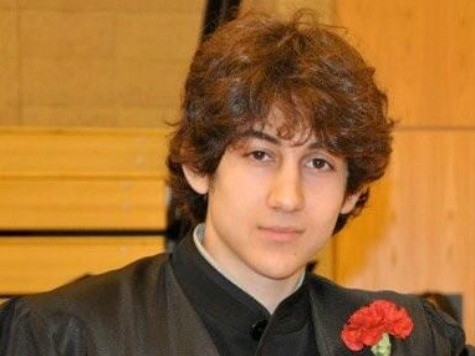This is an update to an earlier story, presenting the analysis of why the Constitution probably entitles Dzhokhar Tsarnaev to the full range of protections in the Bill of Rights that he would receive as a civilian in federal district court.
As indicated at the time, such a civilian designation should be contingent on Tsarnaev not being an operative or agent of a foreign military or foreign terrorist organization. We know that the older brother, Tamerlan Tsarnaev, traveled to Russia for six months last year. There is significant evidence that during that time have traveled to a region where he received formal training on how to make improvised explosive devices (IEDs)–that is, bombs–and that he returned here with the intention of committing terrorist acts. If so, he might be legally regarded as a deep-cover foreign terrorist. And if that is true, then it’s possible as a legal matter that recruiting his brother may be regarded as developing a terrorist sleeper cell, instead of merely being a co-conspirator in a crime.
Until it is confirmed that Tsarnaev was not part of a foreign terrorist sleeper cell, and that this was only a two-man cell–that there are not more terrorists in this cell they were working with–he should be regarded as a potential threat to national security, and subject to interrogation without the criminal procedural protections of the Bill of Rights, just like any foreign enemy combatant. If the Obama administration does not pursue this route, then it is not acting with the full powers President Barack Obama has under Article II of the Constitution to protect the United States.
This raises the very important issue of whether the younger brother, Dzhokhar, was deliberately pursuing foreign terrorist goals when he took the oath of citizenship to become an American citizen in Sept. 2012.
If so, it would be an interesting legal question of whether the government can strip Tsarnaev of his citizenship. Federal law provides that if you make a false statement or withhold information during either your naturalization interview or during the oath-taking ceremony, the U.S. government can cancel your Certificate of Naturalization that made you an American.
One of the factual representations you must make during your interview is that you are not part of a foreign military; perhaps the law could regard membership in a foreign terrorist organization as the legal equivalent of being a soldier serving a foreign nation. I it might be difficult to prove in any event, but it’s certainly a legitimate legal question at this stage.
At some point we will reach a conclusion as to whether any of these foreign entanglements are true. At whatever time we learn that Dzhokhar Tsarnaev was not part of a foreign-directed terrorist sleeper cell–that instead he was a radicalized Islamic jihadist who is a home-grown terrorist but nonetheless legally became a U.S. citizen–then he must be transferred to the civilian system and prosecuted in federal court for capital murder.
Either way, the government is legally correct in temporarily denying Tsarnaev Miranda rights. But there remain questions of whether he is constitutionally entitled to all the other rights he would receive as a civilian citizen under the Fourth, Fifth, Sixth, and Eighth Amendments.
Since there are serious questions of foreign involvement, treat Tsarnaev as an enemy combatant for now, interrogate him and check his email and computer, and at whatever time we cannot present sufficient evidence to prove he is part of a foreign-originated terrorist cell, then (and only then) transfer him to the civilian system.
At that point, Tsarnaev can “lawyer up,” stop talking, and have all the procedural protections of the Bill of Rights as a criminal defendant. His case can be sent to a federal grand jury for indictments, and we can go through the whole legal process to secure jury verdicts for criminal convictions. None of those rights would be lost by keeping him in the national-security/military system now, if he is transferred to the civilian system later. The only question would be whether we can use any confessions he makes now as part of the evidence against him in civilian court later, but we don’t need a confession to convict this man of murder–we have him on video planting one of the deadly bombs.
The U.S. Department of Justice can still successfully prosecute Tsarnaev for capital murder if he is later tried in the civilian court system. But before we fully commit him to the criminal-justice system under Article III federal courts, we should confirm that this newly-minted citizen is in fact a legitimate civilian and did not obtain his citizenship by concealing foreign terrorist ties.
And if he is truly a citizen, but was acting as part of a foreign terrorist organization linked to al Qaeda, then since we have eyewitnesses (through video) to his deadly actions, and since in 2001 Congress authorized war against al Qaeda, he meets both requirements under Article III of the Constitution to be charged with treason.
Whether Tsarnaev is convicted of treason in addition to murder doesn’t matter in terms of the final result. They both carry the death penalty.
Breitbart News legal columnist Ken Klukowski is a fellow with the American Civil Rights Union and on faculty at Liberty University School of Law.

COMMENTS
Please let us know if you're having issues with commenting.